The 5 worst energy drinks that pretend to be healthy
Don't fall for vague health claims and sugar substitutes—and think twice before you quench your thirst with these replenishing sports drinks.
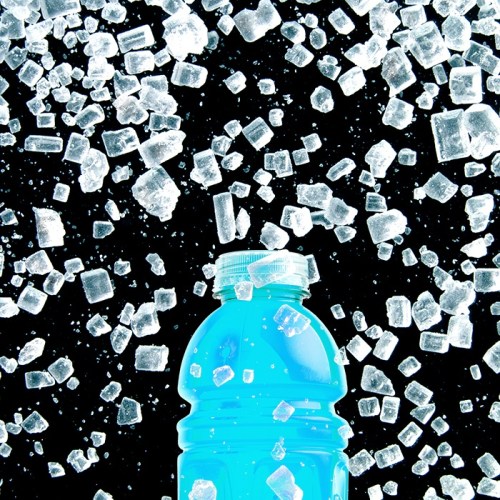
When it comes to being smart about the beverages you sip in the name of energy and hydration, there are the basics that pretty much everyone knows. Red Bull = not so awesome for your body. And ditto for full-of-nothing-but-sugar juices and sports drinks.
But many a discerning consumer has been duped by faux “healthy” energy-enhancing drinks—you know, those bottled beverages that seem to provide wellness benefits, but really just…don’t.
It’s not your fault. It’s summer, and you’re thirsty, but that’s all the more reason not to be lured by suspect ingredients and vague health claims. Here, Dana James, MS, a triple board certified nutritionist and founder of Food Coach, helps us make sense of the beverages you’ll want to skip, and why.
Fails the sugar test: Gatorade G2
People think G2—Gatorade’s lower-cal cousin—is a healthier option, because it has half the carbs and calories of the classic. But sugar is still the second ingredient on G2’s nutrition label, and, according to experts, there’s just no reason for most of us to be loading up on what is essentially sweetened water, even if it is lower-calorie sweetened water. (Excess sugar, of course, is one of the main culprits in everything from mood swings to diabetes.)
“Unless you’re a competitive athlete or exercising for 90 minutes-plus, they shouldn’t be your go-to-beverage,” James says. Drinks like G2 do, however, complement intense exercise, because the sugar allows for rapid hydration and replenishes glycogen levels that have been depleted, James says, so if you’re really going for it workout-wise, they’re an OK option.
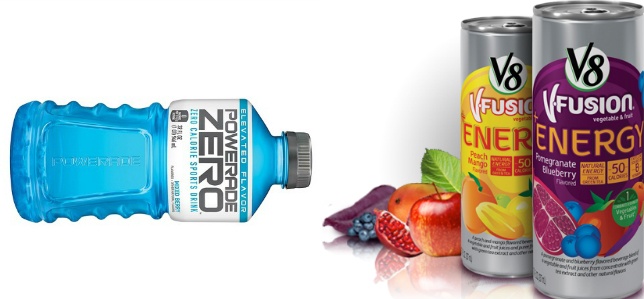
Fails the faux sugar test: Powerade Zero, V8 V-Fusion + Energy
Just because Powerade Zero doesn’t have sugar (which again, is geared specifically for athletes—a big hint that it’s not intended to be mindlessly sipped while you sit at your desk), doesn’t mean it’s healthy. In fact, Powerade Zero and V8 V-Fusion + Energy both contain sucralose, the no-calorie, sugar substitute that goes by the brand name Splenda—and that can take a toll on the gut at the cellular level, studies say.
“Sugar substitutes are a controversial, but the latest research is showing that artificial sweeteners such as aspartame or Splenda, change the gut microbiome for the worse,” James explains. “A disrupted gut extracts more calories from food, leading to increased fat storage, the opposite of what the zero-calorie sweetener person wanted!” And if it’s the caffeine from the green tea in the V8 V-Fusion you’re craving, why not just go for it in its pure form?
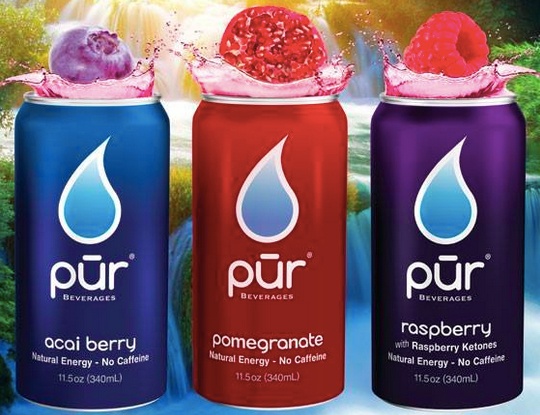 Fails the calorie test: Pur POM
Fails the calorie test: Pur POM
Pur says its POM beverage provides a natural energy boost, thanks to pomegranate, acai, and blueberry extracts—but at 110 calories per can, it fails the calorie test James sets forth for juices (or juice-like beverages).
“My guideline for juices is 60 calories or less for 8 oz.,” she says. “At that level, the body converts all of the carbohydrates to glucose”—and that glucose is directly used by the body for energy. Once you go beyond 60 calories (or 15g of carbohydrates) the body may direct it to fat, not energy storage, James says. “If that’s not your aim,” she cautions, “then it’s best to skip juices in excess of this calorie level.”
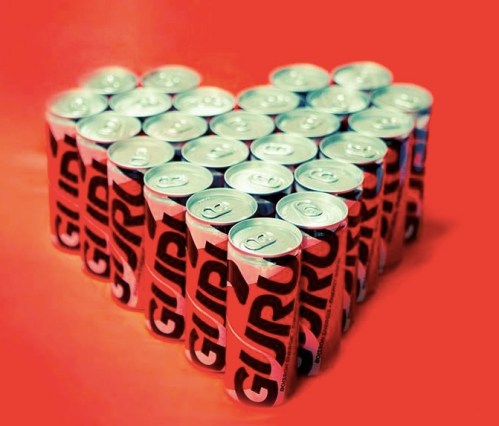
Fails the caffeine source test: GURU Organic Energy Drink
Organic sounds good, and so does “naturally occurring caffeine,” but some of the caffeine in cans of GURU Organic comes from guarana seed extract, which is seriously potent, says James.
She breaks it down: “Even if it’s ‘natural,’ it’s still a stimulant,” she says—and canned stimulants are really only suitable before intense exercise. “That’s when the research supports the use of caffeine in drinks,” she says. “But if you’re using it for a 3 p.m. pick up, well, that’s a disaster. What you’re looking for is increased vitality, not increased energy from caffeine.” A wheat grass shot or green juice would be a much better option.
When nothing but caffeine will do the trick, a cup of coffee or a green tea is a much better option, James says. “The issue with guarana-infused drinks is they don’t have the antioxidants you get in coffee and green tea, which gives a more muted stimulatory response,” James says. “They’re, potentially, much more powerful.”
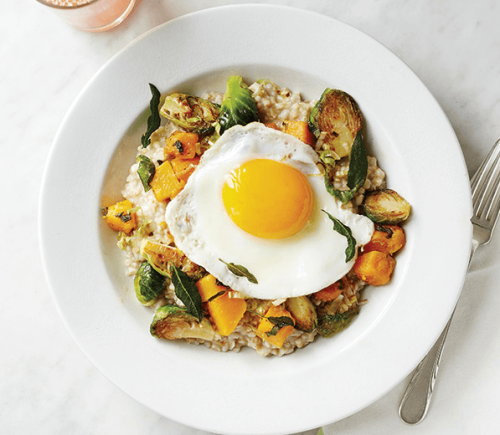
More Reading
7 energy-boosting snacks that help beat the late-afternoon slump35 high-protein healthy breakfast ideas that aren’t smoothiesIs granola good for you?
(Photo: George Weld and Evan Hanczor)
Sign Up for Our Daily Newsletter
Get all the latest in wellness, trends, food, fitness, beauty, and more delivered right to your inbox.
Got it, you've been added to our email list.










